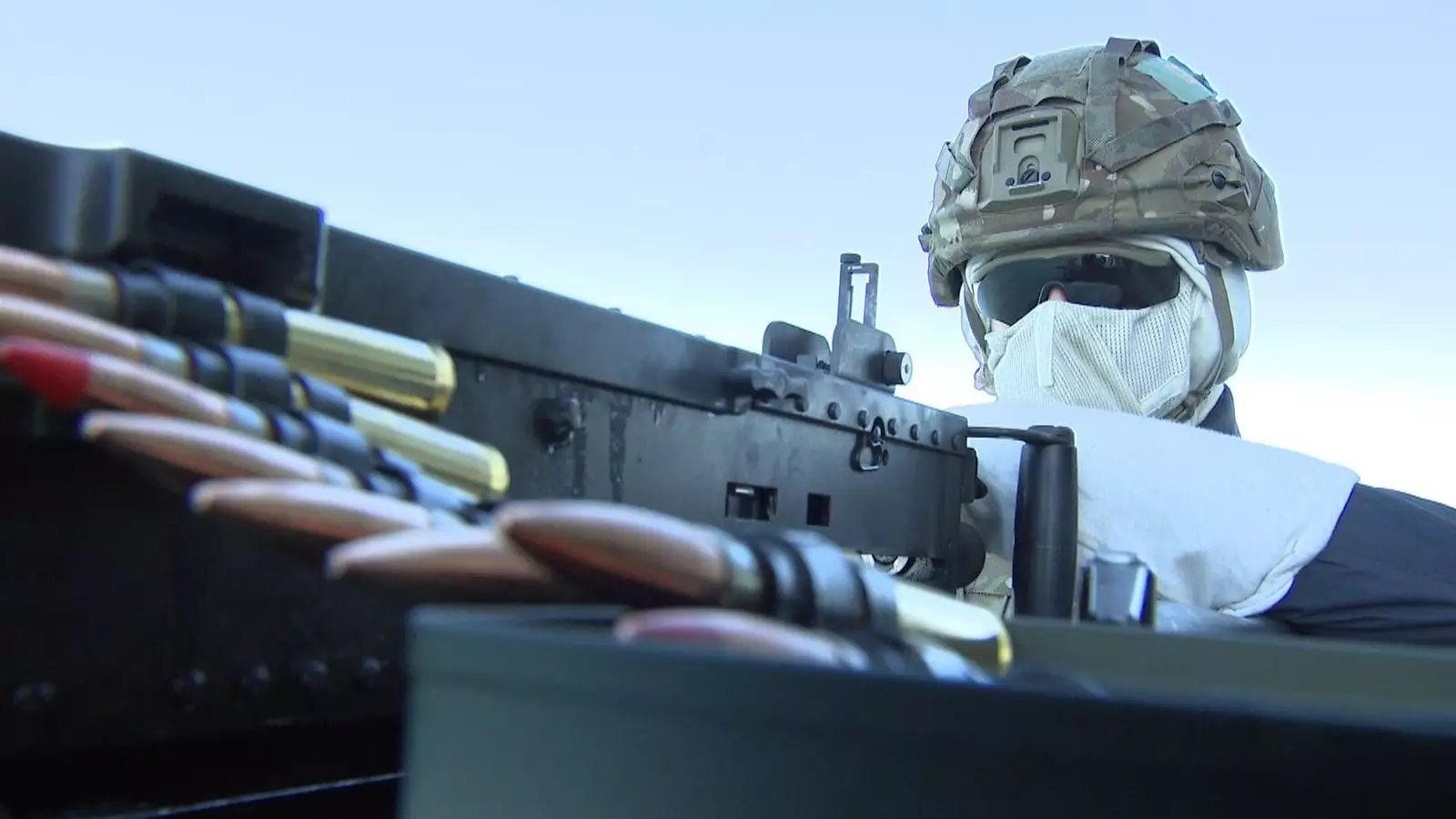As the voice pierces through the air, commanding an alertness that resonates within the ranks of the Royal Navy destroyer HMS Dauntless, one cannot help but reflect on the stark realities of contemporary warfare. The crew is assembled, engaged, and prepared for threats that now come in forms previously unimaginable. Drones—both aerial and maritime—loom as the new harbingers of conflict. This exercise, unfolding off the Welsh coast, reveals a fear that is palpable: the anxiety of navigating hostile waters, not just in preparation for deployment to Asia but also as tensions simmer between major global powers.
The deployment of the HMS Dauntless, accompanying one of the UK’s aircraft carriers, is fraught with peril. Escalating hostilities between Western powers and Iranian proxies speak volumes about the volatility of international relations today. The mere mention of potential attacks using sophisticated drone technology sends shivers down the spine of military strategists and policymakers alike. What does it say about our current state of global affairs when warships are dispatched with the anticipation of engagement in firefights, rather than mere reassurance?
Escalation in Warfare: The Role of Technology
The modern theater of war is increasingly characterized by technological advancements that democratize destruction. No longer are wars fought solely by conventional forces; unmanned systems, particularly drones and uncrewed vessels, are fast becoming preferred tools of combatants around the world. The recent exercise demonstrated not only the capabilities of the Royal Navy but also the terrifying realization that our adversaries are using similar technologies with devastating effects. Ukraine’s effective use of drone warfare against Russia’s Black Sea Fleet illuminates a sobering truth: traditional naval might is dwarfed by innovative tactics that leverage emerging technologies.
As the crew of HMS Dauntless engaged in live drills, taking aim at simulated threats, it was clear that this was not just a test of firepower; it was a race against time and technological evolution. Our military forces must adapt, learning to combat not only conventional forces but also these evolving threats that present tactical challenges unlike any seen before. To simply revise strategies in a time of unprecedented threat is insufficient; a systemic overhaul is necessary to fortify our defenses.
Defense Cuts: A Looming Crisis
Yet, for all the bravado echoed by defense ministers regarding preparedness, budgetary constraints remain a heavy anchor on true readiness. Decades of considerable cuts to defense spending have eroded not just the fabric of military preparedness, but morale itself. It’s a sheer paradox that while tensions escalate and new threats emerge, the response from the government is a promise of an incremental increase in spending—a mere 2.5% of GDP by 2027 isn’t nearly enough when weighed against the backdrop of an increasingly aggressive international landscape.
It begs the question: Should we not demand more from our leaders? In a world where every tax dollar spent on defense could mean the difference between safeguarding national security and exacerbating vulnerabilities, a more robust and immediate plan for bolstering our navy should be at the forefront, rather than a footnote in political discourse. The additional £5 billion announced this year appears almost trivial when juxtaposed against the vast and intricate web of global hostilities.
A Call for New Perspectives
What we are witnessing is not just a military exercise; it is a reflection of our values and priorities. Defense policy cannot merely exist in a vacuum; it requires an informed, robust public debate that engages citizens in meaningful discussions about our national security interests. The stark realities of modern warfare have ushered in a new era where we cannot afford to treat military funding as an afterthought.
If we hope to navigate through the treacherous waters of international politics effectively, it’s imperative to advocate for an agile and responsive naval defense strategy that recognizes the evolving landscape of warfare today. As citizens, we should fervently demand that our government not only prepares for conflict but actively seeks to prevent it through built-tough alliances and forward-thinking defense initiatives. Our naval forces deserve more than nostalgic assertions of their capabilities; they require a solid commitment to ensuring that we are never caught unprepared.

Leave a Reply